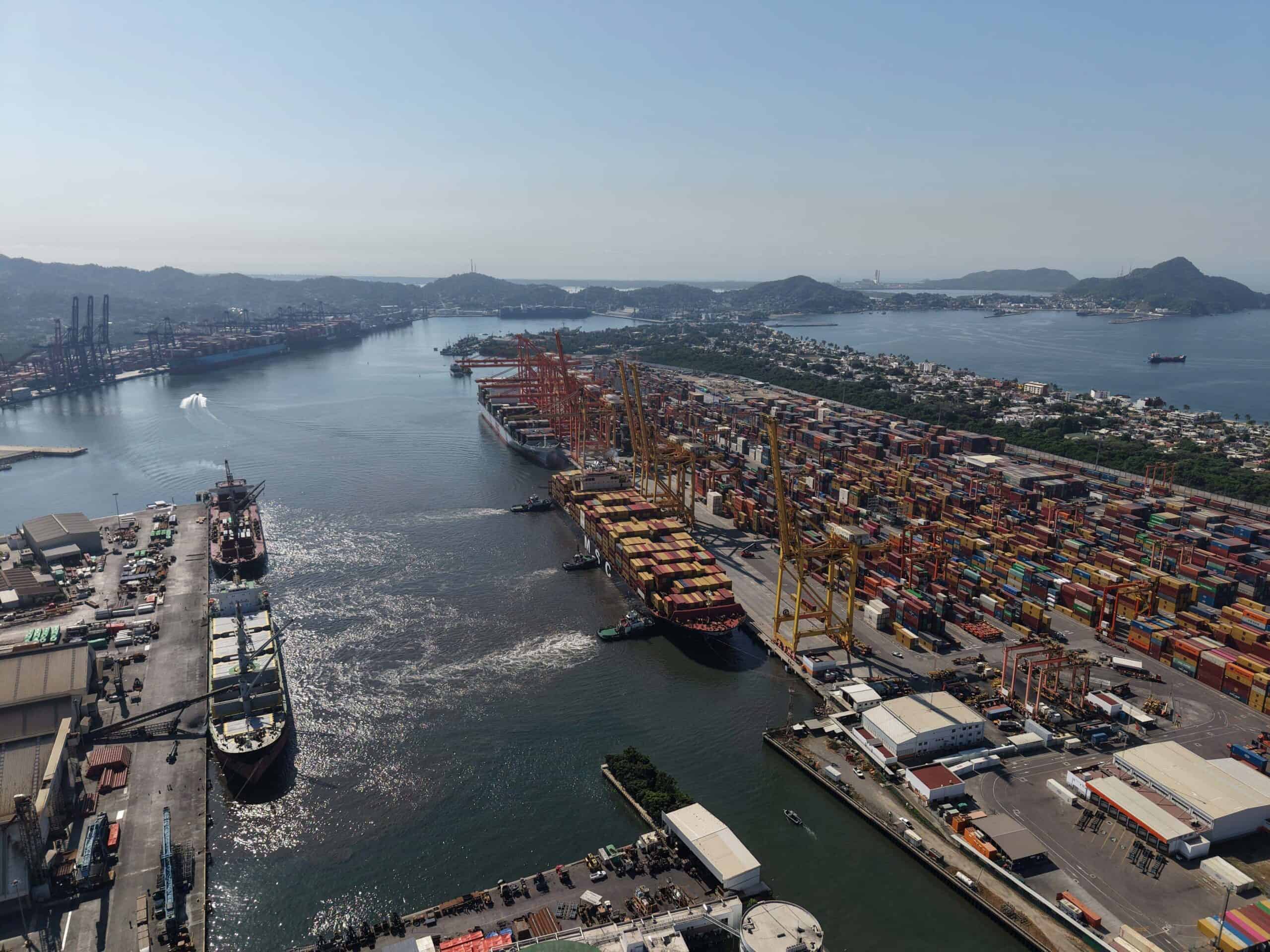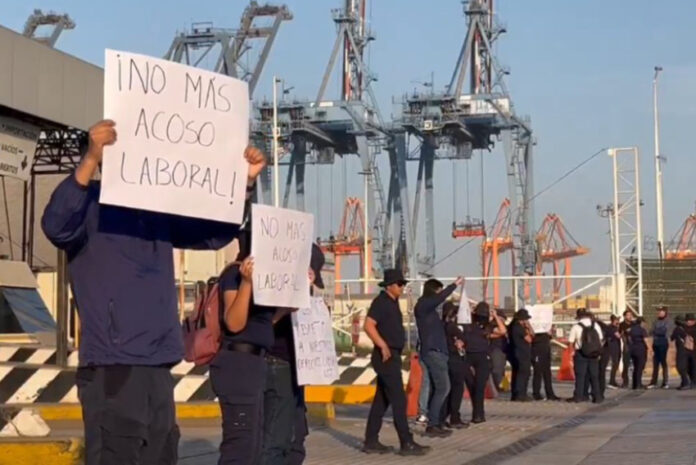Order was restored and full operations resumed at the Pacific Coast port of Manzanillo on Friday, after authorities suppressed a labor strike that began Monday.
National Guard troops, aided by federal security forces, secured the affected areas and removed striking customs employees who were blocking points of entry to the port.
#Entérate
Cerca de 100 trabajadores y funcionarios de la aduana marítima realizan bloqueo al puerto, denuncian abuso, acoso y maltrato laboral y exigen renuncia del nuevo titular de la aduana en #Manzanillo, Rodolfo Torres Chávez. pic.twitter.com/fBDo6i3gLR— Diario de Colima (@Diario_deColima) May 12, 2025
An unspecified number of strikers were apprehended, according to Reforma newspaper. Authorities did not provide details about the arrests or specify what charges the picketers might face.
Before dawn Friday, port authorities issued a statement saying the “demonstration that blocked access to Manzanillo Customs has concluded,” adding that operations were expected to resume at 6 a.m.
Authorities also urged all port users to remain alert for official communications.
The port of Manzanillo, Colima, is Mexico’s top port by revenue and the second-largest by cargo volume.
Customs personnel initiated their protest on Monday morning, denouncing violations of their labor contract, accusing management of abuse and harassment.
Omar Chávez, a customs employee, told local news outlet Origen Informativo that some employees were being forced to work 16-hour shifts while being denied overtime pay and lunch breaks.
Negotiations produced a quick agreement Monday afternoon, but management was almost immediately accused of failing to honor it, prompting an escalation of the strike.
In addition to blocking access points, strikers added new demands, including the removal of customs administrator Rodolfo Torres Chávez and the reinstatement of four employees allegedly fired for their actions Monday.

Torres has been the Manzanillo port administrator for just one month, replacing Mario Alberto Limas, who had been in charge from Jan. 16 to April 15. The Naval Ministry (SEMAR), which oversees all aspects of port development, administration and planning, did not provide a reason for the change.
Unnamed federal authorities cited by El Universal newspaper said Monday’s strike was prompted by the dismissal of five customs employees accused of corruption, but port authorities did not mention this in official communications.
SEMAR announced it will continue to monitor the situation to guarantee the security of port operations.
During the strike, port stakeholders were in constant communication with port authorities to mitigate the impact. Customs brokers advised transporters not to send import and export units to the port, while juggling schedules, waiving late fees and additional charges, and reassigning appointments even as dispatches and vessel operations continued.
Miguel Ángel Landeros, president of the Mexican Foreign Trade Council (COMCE), said port administrators must take steps to prevent such situations from occurring.
“Foreign trade is the cornerstone of Mexico’s economy,” he said. “[Port security] is a matter of national security. … Even one day’s closure represents the loss of millions of pesos.”
COMCE said that as of Thursday 1,500 transportation operations had been impacted.
With reports from Reforma, Proceso, El Universal and El Economista
